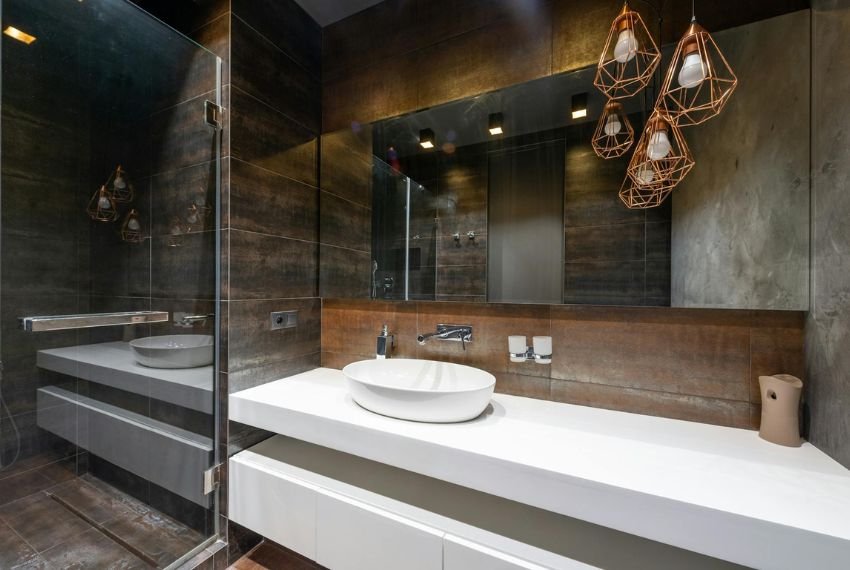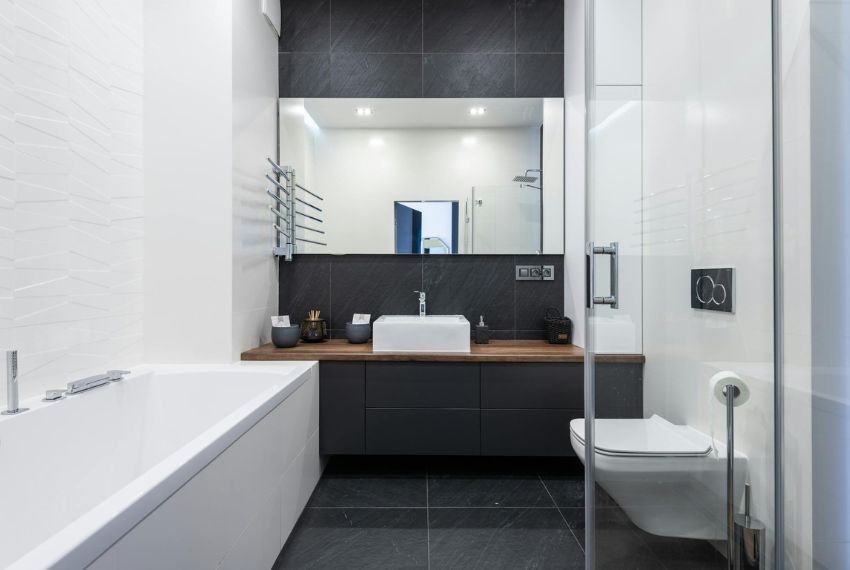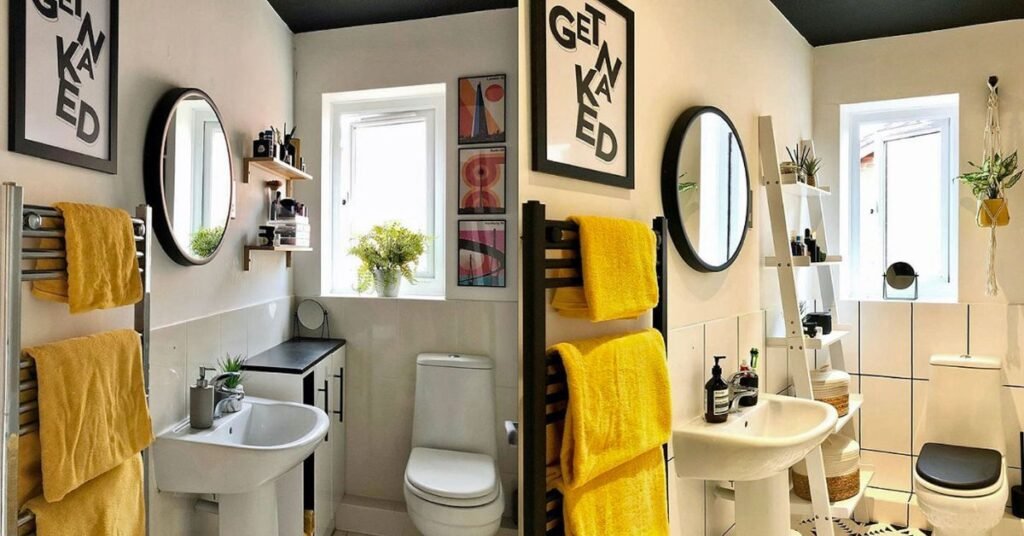Selecting the right bathroom vanity is not just about style—it’s also about functionality. One of the most important factors to consider is the standard bathroom vanity depth. Getting the right depth ensures your vanity fits comfortably in your bathroom, provides enough counter space and allows for easy movement.There are several important considerations when choosing your vanity height to make sure your vanity fits both functional and aesthetic needs.
- What Is the Standard Bathroom Vanity Depth?
- Common Bathroom Vanity Depth Options
- Bathroom Vanity Depth for Single vs. Double Sinks
- Custom and Space-Saving Vanity Depths
- Measuring for the Right Bathroom Vanity Depth
- Factors to Consider Before Choosing a Vanity Depth
- Vanity Depth Trends in 2025
- Conclusion
- FAQs
In this guide, we’ll explore the standard depth for bathroom vanities, the variations available, and tips for choosing the best option for your space.
What Is the Standard Bathroom Vanity Depth?
Standard depth of a bathroom vanity typically ranges from 20 to 21 inches (measured from the front of the countertop to the back wall). This measurement works well for most bathrooms, offering enough counter space without taking up too much floor area.
Why It Matters
- Ensures comfortable access to the sink and counter-top.
- Leaves adequate walking space in smaller bathrooms.
- Helps maintain proper plumbing alignment.
Note: The measurement includes the countertop overhang, which is usually about 1 inch deeper than the cabinet itself.
Common Bathroom Vanity Depth Options
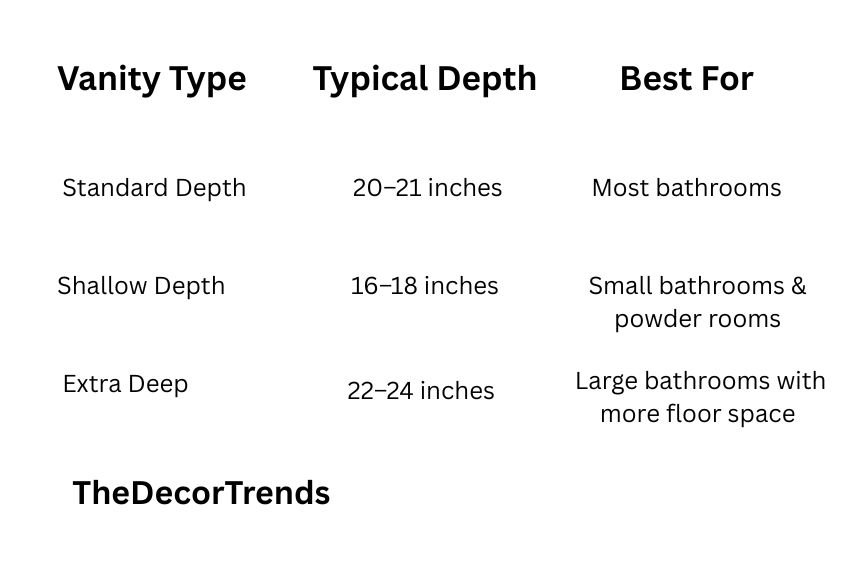
1. Standard Depth (20–21 inches)
- Ideal balance between storage and space.
- Fits most sink styles.
- Works well in medium to large bathrooms.
2. Shallow Depth (16–18 inches)
- Great for tight spaces.
- Reduces counter-top space but increases floor clearance.
- Often paired with narrow sinks.
3. Extra-Deep (22–24 inches)
- Offers more counters and storage space.
- Requires more floor space, so best for larger layouts.
Bathroom Vanity Depth for Single vs. Double Sinks
Depth requirements can vary based on whether you’re installing a single-sink or double-sink vanity.
- Single-Sink Vanities: Standard depth works well in most cases.
- Double-Sink Vanities: May require extra depth (up to 24 inches) to fit larger basins and plumbing.
Tip: Always check your sink’s manufacturer specs before choosing a vanity depth.
Custom and Space-Saving Vanity Depths
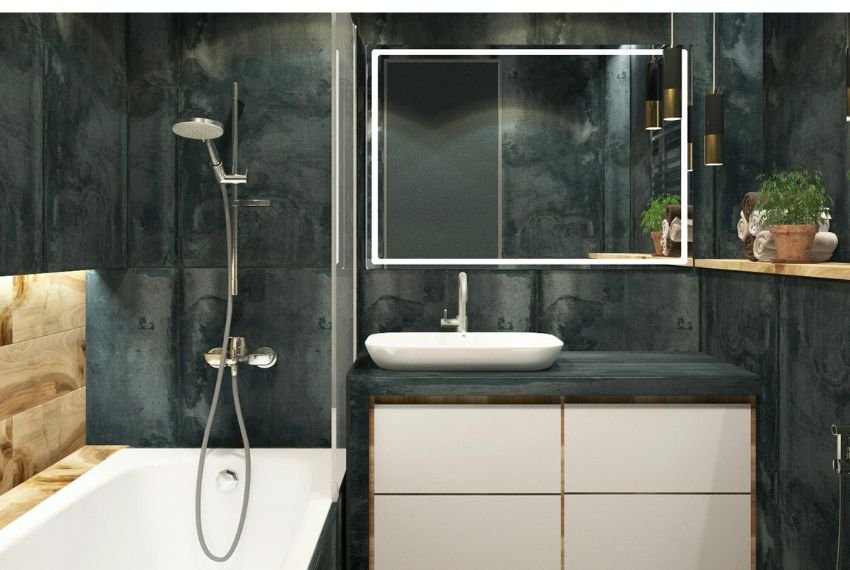
Not every bathroom fits the “standard” size. Custom vanity depths are an option if:
- Your bathroom has unique measurements.
- You want to maximise space in a small layout.
- You’re designing around existing plumbing.
Floating vanities can also create the illusion of more space, even if they follow the standard depth.
Measuring for the Right Bathroom Vanity Depth
Step-by-Step Guide:
- Measure from the back wall to the maximum point your vanity can extend without blocking movement.
- Consider door swings (bathroom and shower doors).
- Check plumbing placement to ensure proper fit.
- Allow at least 21 inches of front clearance for comfortable use.
Tip: Use painter’s tape on the floor to mark out different depth sizes before buying.
Factors to Consider Before Choosing a Vanity Depth
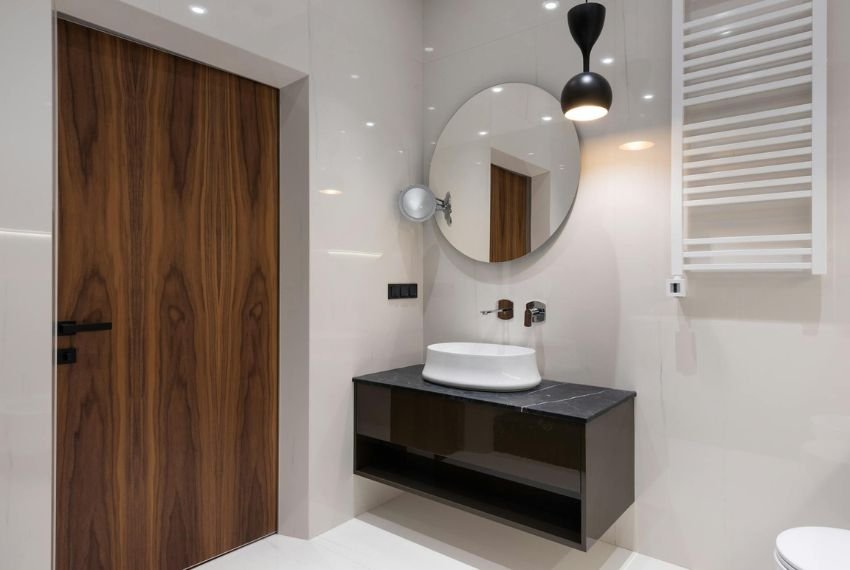
1. Bathroom Size
Smaller bathrooms benefit from shallow depths, while larger spaces can accommodate deeper vanities.
2. Storage Needs
Deeper vanities offer more cabinet space for toiletries and cleaning supplies.
3. Accessibility
For universal design or ADA compliance, depth should be paired with the right height for ease of use.
4. Style Preference
Modern designs often lean toward floating or slim profiles, while traditional styles may be deeper.
Vanity Depth Trends in 2025
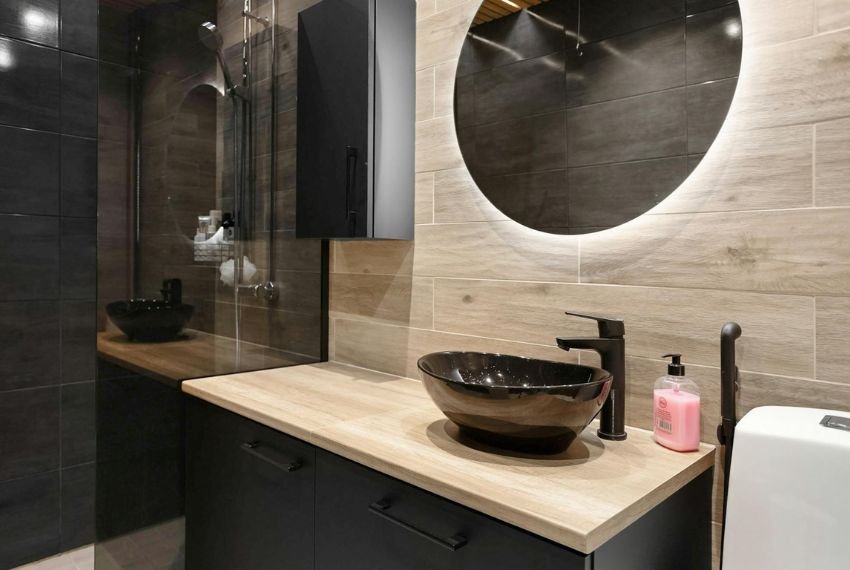
- Slimline Designs: Minimalist vanities with 16–18 inch depths.
- Floating Vanities: Creates a more open feel in small bathrooms.
- Integrated Sink Counter-tops: Keeps the depth consistent and streamlined.
Conclusion
The standard bathroom vanity depth of 20–21 inches works for most bathrooms, balancing comfort, storage, and style. However, your choice should depend on your bathroom size, layout, and personal needs. Whether you opt for standard, shallow, or extra-deep, accurate measurements are key to a perfect fit.
By understanding depth options and considering your space, you’ll make a choice that’s both functional and visually appealing for years to come.
Explore more
FAQs
Q1: What is the most common bathroom vanity depth?
Most standard bathroom vanities are 20–21 inches deep, including the countertop.
Q2: Can I get a vanity shallower than 20 inches?
Yes, shallow-depth vanities (16–18 inches) are great for small bathrooms or powder rooms.
Q3: How deep should a double-sink vanity be?
Double-sink vanities often need 22–24 inches of depth to fit the sinks and plumbing comfortably.
Q4: Does vanity depth include the countertop?
Yes, the listed depth usually includes the countertop overhang, which is about 1 inch deeper than the cabinet.
Q5: Can I customize my vanity depth?
Yes, custom-built vanities can be made to fit unique bathroom layouts or specific design preferences.

